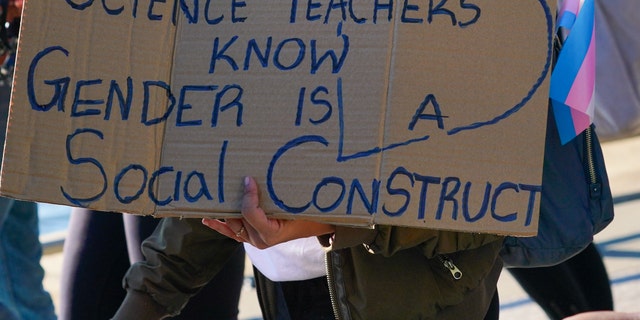Scientists respond to resurfaced 1991 study on Borderline Personality Disorder in mothers of transgender boys
A resurfaced 1991 study that examines the mothers of boys and their gender identity has been making the rounds on social media with pundits and influencers on all sides weighing in on it.
The study, “Mothers of Boys with Gender Identity Disorder: A Comparison of Matched Controls,” was published in the Journal of the American Academy of Child & Adolescent Psychiatry by Dr. Sonia Marantz and Dr. Susan Coates.
The women interviewed 16 mothers of boys with GID, or gender dysphoria — a person whose gender identity doesn’t match their assigned sex — and 17 mothers of boys without it. The study concluded that 53% of mothers of sons with GID qualified as having Borderline Personality Disorder.
When asked recently about the possibilities of reproducing the study in today’s climate of acceptance, activism and social media saturation, two psychiatric scientists offered their insight.
CALIFORNIA BILL THAT COULD PUNISH PARENTS WHO DON’T ‘AFFIRM’ CHILDREN’S GENDER IS ‘RECKLESS’: PSYCHOTHERAPIST

“I suspect that if this 1991 study were conducted today, the results would be similar, if not more pronounced since fundamental motivators of human behavior can remain thematically similar over time but the social incentives to have a non-cisgendered child are likely greater now than 30 years ago,” Dr. Nina Silander, an author and practicing psychologist, told Fox News Digital. “That said, a newer study would have to account for the limitations of this one, especially the lack of clinical controls, exclusion of fathers in the sample, and lack of attention to gender dysphoria in daughters and the mother/parent-daughter relationship.”
According to Dr. Robert D. Mather, a similar study conducted today would likely have a “weaker” effect.
“If the study were conducted today, I would expect the effects would be much weaker due to the cases coming from so many different socially manufactured sources,” Mather, a writer and columnist for Psychology Today, told Fox News Digital. “I would expect that any effect of the role of the mother’s psychology would be difficult to see due to the increased statistical noise.
“However, it is also possible that if the symbiosis account proposed by Morantz and Coates is true that the effect could be strengthened in a replication of the study in today’s climate.”

Concerns over transgenderism have erupted in recent years as instances of it being promoted within schools and in sports have come to light. A recent Pride event held at the White House saw multiple transgender activists display their breasts and surgery scars with children present.
A cottage industry has emerged on social media of parents documenting their children undergoing gender-changing procedures with accusations of profiting off their transition, or encouraging it, being widespread.
“The [study] is fascinating because it examines this outside of the current cultural and political context surrounding gender,” Mathers said. “The Morantz and Coates study has strengths in that it examines the issue before the current cultural explosion of redefining the norms of gender. It has a very small sample size, but that is to be expected for Gender Identity Disorder that was at the time incredibly rare.”
TRANS ACTIVIST ROSE MONTOYA DOUBLES DOWN ON GOING TOPLESS AT THE WHITE HOUSE, SAYS IT WAS ‘PERFECTLY LEGAL’

Silander said that while belonging to a sexual minority identity today may carry clout, psychologically unwell parents might be more susceptible to the notion.
“Having a sexual minority identity appears to be a social currency or means for status. Psychologically unwell parents may be more susceptible, than psychologically well parents, to pursue this gender minority status to the negation of considering other factors that contribute to gender dysphoria or the superficiality or transience of gender-nonconforming habits or preferences,” Silander said.
“This is in part for the following reasons: 1) Psychologically unwell parents may also be more likely to project their own psychological needs on their children; 2) A dominant strain of modern feminism inculcates negative attitudes about masculinity, such that many feminist mothers (and fathers) are uncomfortable about their sons displaying stereotypically masculine traits and behaviors.”
Fox News Digital reached out to Dr. Susan Coates, Dr. Sonia Marantz, The Journal of the American Academy of Child & Adolescent Psychiatry and The Human Rights Campaign but did not get a response.
Read the full article Here


